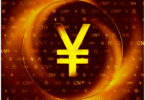China’s Institute of Information and Communications (CIIC) claims that, by August 2019, over $10 billion had been invested in blockchain firms worldwide. And China has the second-highest number of them, behind only the US.
Yesterday, CCTV news reported how thousands of companies in China take advantage of this by adopting the word ‘blockchain’ without having any use of the technology. Even worse, some use it to defraud investors and customers by claiming that their technology creates trust.
“At present, we have detected the blockchain companies with the word “blockchain” or in its business scope. There are more than 32,000,” said Wu Zhen, head of the Internet Financial Security lab of the National Internet Emergency Center (NIEC).
“However,” he continued, “after actual monitoring, we found that there are not many companies that have blockchain technology or chain ownership […] About 10%, or even less than 10%.”
The CCTV journalist decided to test this out by searching ‘blockchain’ online. One of the firms discovered was BEEBANK, which claimed to be a digital wallet with an underlying public blockchain. On joining the network, and promoting and using the wallet, users could earn 30,000 to 100,000 yuan ($4,000 to $14,000) per month. At the ‘fifth level’ this rises to 2 – 7 million yuan ($280,000 – $1m).
However, once the reporter contacted the creator of a promotional video for BEEBANK, it became clear the firm was a scam. The promoter claimed he was conned out of hundreds of thousands of yuan.
Another initiative, known as ‘fun step’, rewarded users with ‘candy’ tokens for being physically active, which could be redeemed for goods or cash. Since customers could earn money by walking a few thousand steps a day, ‘fun step’ appeared to be an attractive use of blockchain. But this September it was announced the company was being investigated for financial fraud and pyramid schemes.
The NIEC’s research finds that there at least 755 distinct ‘zero-return’ coins and 102 pyramid scheme coins.
“The actual pyramid currency has little to do with the blockchain, just borrowing the blockchain hype to scam,” explained Wu.
And it’s been happening since as early as 2016. A firm named Liu promoted its ‘digital currency’, sharing price fluctuations and the promise of high returns. However, the price values were false and set by back-office staff. The scam stole 1.5 billion yuan ($213m) from upwards of 34,000 people.
As yesterday’s article points out, blockchain is a technology with no value on its own. It’s becoming increasingly common for firms to ‘borrow’ the term though they don’t use blockchain at all. Given its current interest, particularly in China after the president’s endorsement, even having the word ‘blockchain’ in a company name can attract people to a pyramid scheme or bad investment.






